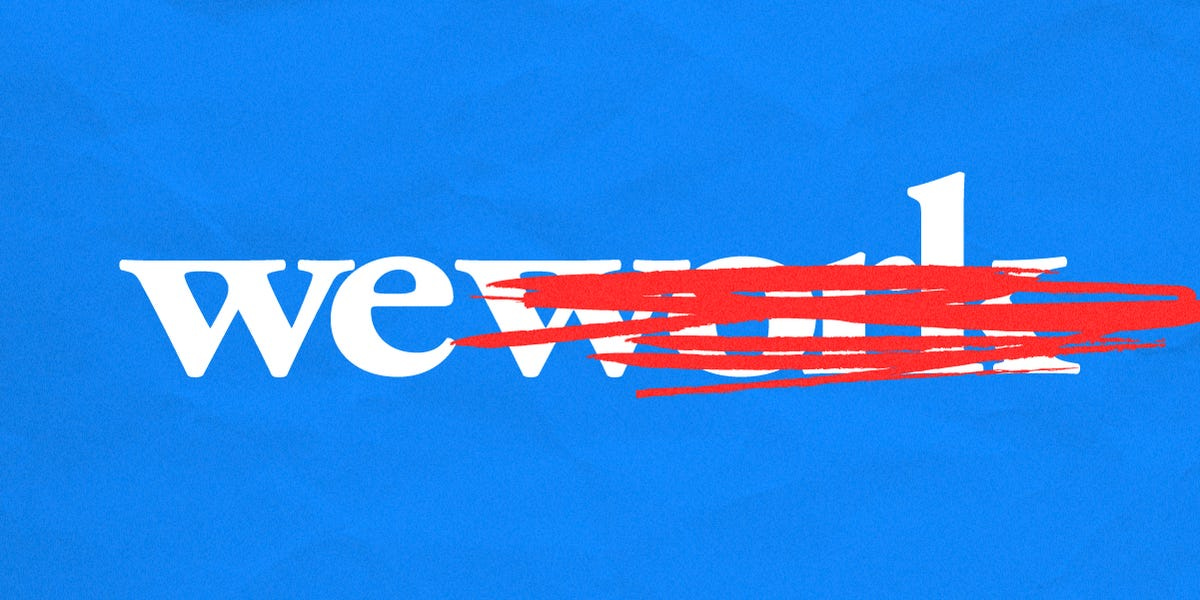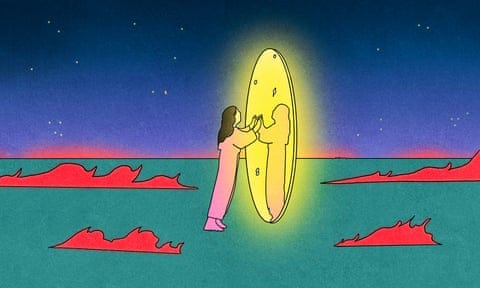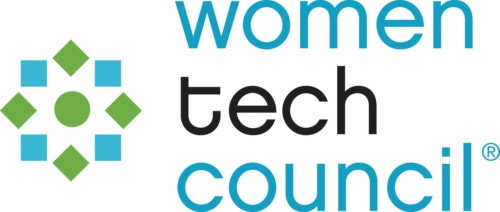Issue 4: Women of Science Nov '23
News, research, reviews, recommendations & an essay on entrepreneurial hubris (looking at you, WeWork...)
Welcome back to Women of Science, featuring all the best happenings re: women of science every week 🧬
🔬 What to expect?
All subscribers receive the free edition covering weekly highlights in media, awards and discovery as well as things to read, see and watch re: women in science. Drops every Tuesday. Tell your friends:
Thank you for joining. Enjoy the read.
A quick run-down of this issue:
Abstract & Intro: News and updates on all things women of science
Materials, Methods, Discussion: An essay on entrepreneurial hubris
Conclusions & Further Reading: Reccos, reads & links this week Abstract & Intro
Headlines, news & media snippets re: women of science this week
Feminists are not ‘man haters’, a new study has revealed: Researchers from the Universities of Surrey and Oslo have identified that feminists and non-feminists alike display no difference in their attitude towards men, debunking the common myth that the “feminists dislike men”.
Engineering: First female crash test dummy to improve road safety for women
She's 5 foot 3 (1.6 metres) tall, has hips and her name is SET 50F 💃: Researchers in Sweden have recently created a crash test dummy that tries to match the average female body and thus minimise harm to biological women resulting from vehicle-related accidents. The SET 50F dummies differ from existing crash test dummies the world over in size, weight, chest size and with lower joint stiffness.
Pharma: New NIH head says U.S. government has fallen behind pharma on clinical trials
The new National Institutes of Health director, Monica Bertagnolli, has said publicly this week that it is a “failure” that enrolment in government-funded clinical trials has lagged behind those funded by the pharmaceutical industry.
Medicine: New AI tool can detect up to 13% more breast cancers than humans in breast screenings
In better news, prospective evidence published in Nature Medicine this week has found that an AI tool called Mia could significantly increase the early detection of breast cancers in a European healthcare setting by up to 13%, and thus improve outcomes by allowing for earlier treatment initiation once detected.
Tech: Clue and ŌURA launch new integration and research partnership
Clue, the pioneering period tracking and reproductive health app, and ŌURA, the company behind the smart ring tech that delivers personalised health data to users, have announced a new integration that marks the beginning of a “purpose-driven partnership” to uncover new insights into female health.
Healthcare: Intermittent fasting causes hormonal issues in women
Women engaging in fasting should monitor changes in their menstrual cycle, according to new research: Intermittent fasting has shown favourable effects in women with PCOS, but may impact fertility over prolonged periods.
The World Health Organization has launched a free e-learning programme designed to boost health workers’ capacity to identify and support women experiencing intimate partner violence or sexual violence.
Healthcare: NICE draft updated guideline recommends more treatment choices for menopause symptoms
CBT was found to reduce the frequency and severity of hot flushes and night sweats and should be considered alongside or as an alternative to HRT, the draft UK guidance says.
Healthcare: Lack of menstrual health support at work impacting two-thirds of women
A new survey by the Chartered Institute of Personnel and Development (CIPD) has highlighted the inequality women in the workplace face due to menstruation, with over two-thirds of UK women having reported negative experiences in the workplace.
& in other brief news:
Only 0.5% of neuroscience studies look at women’s health. Here’s how to change that.
A new oral postpartum treatment is coming, but it’s not cheap.
BBC 100 Women 2023: Who is on the list this year?
Where does the female orgasm come from? Scientists think they know.
Materials, Methods, Discussion
A brief essay on entrepreneurial hubris
It’s not been a great year for tech entrepreneurs named Sam: Those of the Bankman-Fried and more recently Altman varieties have recently found themselves tumbling from the dizzying heights of tech co. domination (though the latter has, at least, not found himself at the centre of a court case and instead has been swiftly snapped up by Microsoft). It’s a common thread, however, for once-lionised entrepreneurial wizards to find themselves within a matter of years from dominating Forbes 30u30 lists to having their own streaming documentaries chronicling their downfalls. I give you here, Elizabeth Holmes and Anna Delvey (though Bloomberg has also been hot off the mark to bring us one on the aforementioned FTX founder), each weaving a cautionary tale of unchecked ambition.
Latest in the line-up of human targets are the founders of co-working hothubs, WeWork - a company long plagued by accusations of fraud, and which has now been forced to file for U.S. bankruptcy. Among the latest casualties are the founders of WeWork, a co-working hub that, like a shooting star, once dazzled with a valuation of $47 billion only to find itself now, along with a host of other previous 30u30-founder companies (hi, FTX), seeking refuge in U.S. bankruptcy court.
While the narrative of entrepreneurial hubris and its pitfalls is well-worn, an intriguing aspect emerges when considering its disparate impact on women entrepreneurs as opposed to their male counterparts: Closer examination of the systemic biases within the entrepreneurial landscape reveals that women, in particular, may bear a disproportionate burden when hubris collides with the glass ceiling.
The downfall of WeWork and its founder, Adam Neumann, encapsulates the phenomenon, but is nothing new: The UK Guardian recently published an op-ed on the “unbearable hubris” of Musk and his billionaire boy kin. Neumann, despite being (very publicly) ousted, was cushioned by a deal that nonetheless allowed him to join the 10-figure club. In a society where male entrepreneurs are often allowed to fail upwards, finding soft landings even amidst corporate turbulence, their female counterparts are less likely to receive the same treatment. The gender disparity in how entrepreneurial failures are perceived only adds to the mountain of challenges (still) faced by women in the realm of business.
Moreover, the dynamics of power and influence within the entrepreneurial ecosystem can exacerbate the impact of egoism on women, and this asymmetry both reflects and perpetuates a culture that is less forgiving of female leaders, constraining their ability to navigate the complex web of work-related highs and lows.
The case of WeWork not only underscores the fragility of seemingly invincible tech giants, but also serves as a stark reminder of the gendered dimensions of entrepreneurial hubris: As the co-working giant now finds itself unable to repay debtors, the fallout extends beyond the confines of corporate boardrooms to illuminate the broader challenges faced by women in the entrepreneurial arena, and where gender biases persist even in failure.
Conclusions & Further Reading
More links & signposts for you to enjoy this week…
Publication of the week:
Greenland-wide accelerated retreat of peripheral glaciers in the twenty-first century Nature Climate Change, 2023
Greenland's glacier retreat rate has doubled over past two decades, a Northwestern University and University of Copenhagen study has found, led by Laura Larocca.
To piece together the magnitude of glacier retreat, the research team combined satellite images with historical aerial photographs of Greenland's coastline, which is dotted with thousands of glaciers that are separate from the island's massive central ice sheet. With these one-of-a-kind data, the researchers documented changes in the lengths of more than 1,000 of the country's glaciers over the past 130 years.
Why is this useful? The study finds that climate change explains the accelerated glacier retreat and that glaciers across Greenland respond quickly to changing temperatures, re-emphasising the importance of slowing global warming. The data generated in this study (including frontal change rate, late-twentieth-century length measurements, and MAR climate and SMB output) is archived and publicly available at the Geological Survey of Denmark and Greenland (GEUS) Dataverse.
Interview of the week:
Whitney Wolfe Herd: why I am quitting life as a dating app billionaire boss
When Whitney Wolfe Herd recently stood down as chief executive of behemoth Bumble, she was braced for the invariable flood of negative headlines (see our essay on entrepreneurial hubris and the bias against women founders above 👆).
The founder of the dating app with 40 million users (and counting), which she founded at the age of 25, tells Julia Llewellyn Smith in the UK The Times what an “isolating” experience it was, and what her next venture will involve.
Books & review articles:
💊 A Discovery, Opioids and Women in Science: Did the discovery of the mu opioid receptor help launch the opioid crisis? The WSJ investigates.
👩🏼🔬 Stop calling women’s bodies mystery. Medical science just hasn’t paid enough attention to them: No woman originated from Adam’s rib, and female bodies aren't mysteries to be solved by poets and artists, writes Mohana Basu in The Print.
📚 ‘It felt detoxifying’: Sandra Newman, the author of Julia, the latest pick for the New Scientist Book Club, explains why she wanted to rewrite Orwell’s classic dystopia from the point of view of the lover of its protagonist Winston Smith.
🏥 The $2,500 MRI That Told Me I Might Drink Too Much: You might’ve seen Kim Kardashian try Prenuvo, a full-body MRI scan said to detect serious illness. (Her mom, Kris Jenner, has also tried it.) While it may seem like a buzzy Kardashian-Jenner-approved new wellness movement that has a very expensive price tag, they want to be seen as more than that.
🧑🎓 Life scientists’ flight to biotech labs stalls important academic research: Academia is in the midst of an unprecedented exodus of life science researchers, many of whom are leaving for lucrative jobs in the private sector, and the seismic shift in researchers from academic to biotech labs is already having a detrimental impact on basic research.
🧘♀️ ‘We’re sedating women with self-care’: how we became obsessed with wellness: The industry claims to offer answers for all our stress and symptoms – but we ‘still lack the fundamentals of wellbeing’. How did this happen?
Podcast of the week:
Unchartered with Hannah Fry: Behind every line on a graph, there lies an extraordinary human story. Irish mathematician Hannah Fry regales these stories over a 10-part podcast series of data-driven mysteries to reveal the power of numbers. Each episode is around 15 mins long, so perfect listening for a short commute or walk!
Opportunity of the week:
Shatter List from Women Tech Council: The Shatter List showcases technology companies that are creating and enacting practices and cultures that remove the glass ceiling; compiled by scoring companies on four factors critical to building inclusive cultures with meaningful measures that help women break and surpass the glass ceiling in technology.
📍 Applications close: 15 Jan 2024
Out and about this week:
RE/SISTERS: A Lens on Gender and Ecology | Barbican
Barbican Art Gallery has just opened its RE/SISTERS: A Lens on Gender and Ecology: A major group exhibition surveying the relationship between gender and ecology to identify the systemic links between the oppression of women and the degradation of the planet.
The exhibition brings together photography, film, and installations by nearly 50 international women and gender non-conforming artists whose work is united across decades, continents, and media by an urgent engagement with, and protest against, the ongoing ecological crisis. Platforming work by artists from the Global Majority and Indigenous peoples, RE/SISTERS explores the indivisible bond between environmental and social justice, offering a vision of an equitable society wherein people and planet alike are venerated and treated fairly.
📍 Barbican Art Gallery: 5 October 2023 – 14 January 2024
That’s all for this week!
Thank you for reading: The WoS mission is to support, share and promote the innovative and groundbreaking work that has been and continues to be done by women across all scientific disciplines, and to empower and inspire the next generation of female leaders in the field.
If you liked it, here’s another reminder to share us with your friends, network, neighbours, coffee baristas ☕ etc.:
Over the coming months, the WoS community will also be adding to its repertoire of channels for sharing content, so watch this space!













